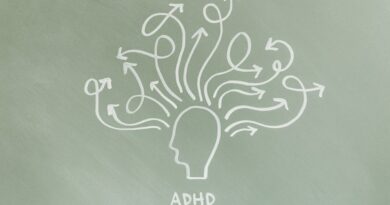The Role of Therapy in Addiction Treatment: A Comprehensive Guide
Addiction is a complex and challenging condition that affects millions of people worldwide. Whether it’s substance abuse, gambling, or other addictive behaviors, overcoming addiction is often a long and arduous journey. While there are numerous approaches to addiction treatment, therapy plays a crucial role in helping individuals address the underlying issues that contribute to their addictive behaviors. In this article, we will delve into the various aspects of therapy in addiction treatment, exploring its significance, effectiveness, and different modalities used in this process.
The Importance of Therapy in Addiction Treatment

Therapy is a cornerstone of addiction treatment, as it provides individuals with the tools and strategies needed to understand and cope with their addiction. Through therapy, individuals can explore the root causes of their addictive behaviors, gain insight into their thought patterns and emotions, and develop healthier coping mechanisms. Therapy can also help individuals rebuild relationships, improve communication skills, and learn how to deal with stress and triggers without resorting to addictive substances or behaviors.
One of the key benefits of therapy in addiction treatment is that it offers a safe and supportive environment for individuals to process their experiences and emotions. Many people struggling with addiction may have underlying trauma, mental health issues, or other unresolved issues that contribute to their addictive behaviors. Therapy provides a non-judgmental space where individuals can work through these issues with the guidance of a trained therapist.
Additionally, therapy can help individuals develop essential life skills, such as problem-solving, decision-making, and emotional regulation. These skills are crucial for maintaining long-term recovery and preventing relapse. By addressing the psychological, emotional, and behavioral aspects of addiction, therapy equips individuals with the tools they need to lead fulfilling and substance-free lives.
The Different Modalities of Therapy in Addiction Treatment

There are various modalities of therapy used in addiction treatment, each with its own strengths and focus. Some of the most common types of therapy include:
Cognitive Behavioral Therapy (CBT)
Cognitive Behavioral Therapy (CBT) is a widely used therapeutic approach in addiction treatment. CBT focuses on identifying and changing negative thought patterns and behaviors that contribute to addiction. By challenging irrational beliefs and developing healthy coping strategies, individuals can learn to manage cravings, triggers, and stressors without turning to substances.
CBT is often used in individual and group therapy settings, as well as in combination with other therapies. Research has shown that CBT can be highly effective in treating addiction, especially when tailored to the individual’s specific needs and circumstances.
Family Therapy
Family therapy is another essential modality in addiction treatment, as it addresses the impact of addiction on the individual’s family dynamics. Addiction can strain relationships, create conflict, and contribute to enabling behaviors within the family system. Family therapy helps families communicate effectively, set boundaries, and support their loved one in recovery.
Family therapy can also help identify and address underlying issues within the family that may contribute to addictive behaviors. By involving family members in the therapy process, individuals can build a stronger support system and improve their chances of long-term recovery.
Experiential Therapy
Experiential therapy uses activities and experiences to help individuals explore their emotions, build self-awareness, and develop new coping skills. Examples of experiential therapies include art therapy, music therapy, equine therapy, and adventure therapy. These approaches can be especially beneficial for individuals who struggle to express themselves verbally or who have a history of trauma.
Experiential therapy can help individuals tap into their creativity, enhance their problem-solving skills, and build confidence in their ability to overcome challenges. By engaging in hands-on activities, individuals can gain a deeper understanding of themselves and their addiction, paving the way for lasting change.
12-Step Facilitation Therapy
12-Step Facilitation Therapy is based on the principles of Alcoholics Anonymous (AA) and other 12-step programs. This therapy emphasizes surrendering to a higher power, accepting personal responsibility, and participating in a supportive community of peers. 12-Step Facilitation Therapy is often used in conjunction with other therapies and support groups to provide individuals with a structured and holistic approach to recovery.
Research has shown that participation in 12-step programs can significantly improve treatment outcomes for individuals with addiction. By attending meetings, working the 12 steps, and connecting with others in recovery, individuals can find a sense of belonging, purpose, and hope for the future.
Motivational Interviewing
Motivational Interviewing is a client-centered therapy approach that helps individuals explore their ambivalence towards change and develop internal motivation for recovery. This therapy aims to strengthen the individual’s commitment to change, enhance their self-efficacy, and address any barriers to treatment engagement.
Motivational Interviewing is often used in the early stages of treatment to help individuals overcome their resistance to change and build confidence in their ability to achieve recovery goals. By fostering a collaborative and empathic relationship between the therapist and the client, Motivational Interviewing can empower individuals to make positive changes in their lives.
The Role of Therapy in Dual Diagnosis Treatment

Dual diagnosis refers to the co-occurrence of substance abuse and mental health disorders. Many individuals with addiction also struggle with conditions such as depression, anxiety, PTSD, or personality disorders. Dual diagnosis treatment involves addressing both the addiction and the underlying mental health issues simultaneously.
Therapy plays a crucial role in dual diagnosis treatment, as it helps individuals manage their symptoms, improve their coping skills, and address the underlying issues that contribute to both their addiction and mental health disorder. Integrating therapy into dual diagnosis treatment can lead to better treatment outcomes, reduced relapse rates, and improved overall well-being.
Therapists who specialize in dual diagnosis treatment are trained to provide integrated care that addresses the complex interplay between addiction and mental health. By using evidence-based therapies, such as cognitive behavioral therapy, dialectical behavior therapy, and trauma-informed care, therapists can help individuals achieve lasting recovery and mental health stability.
Common Misconceptions About Therapy in Addiction Treatment

Despite the importance of therapy in addiction treatment, there are several misconceptions that can prevent individuals from seeking or benefiting from therapy. Some common misconceptions include:
Therapy is only for severe cases of addiction
Therapy is beneficial for individuals at all stages of addiction, from mild to severe. Whether someone is struggling with occasional substance use or a long-standing addiction, therapy can provide valuable support, insight, and tools for recovery.
Therapy is a sign of weakness
Seeking therapy is a courageous step towards healing and personal growth, not a sign of weakness. Therapy offers individuals a safe space to explore their thoughts, emotions, and behaviors without judgment, and can help them build resilience, self-awareness, and coping skills.
Therapy is only for talking about problems
While therapy certainly involves discussing challenges and issues, it also focuses on building strengths, developing skills, and fostering growth. Therapy is a proactive and empowering process that helps individuals create positive changes in their lives and move towards a healthier and more fulfilling future.
Conclusion
Therapy plays a vital role in addiction treatment, offering individuals the support, guidance, and tools they need to overcome their addictive behaviors and build a fulfilling life in recovery. By addressing the psychological, emotional, and behavioral aspects of addiction, therapy helps individuals understand the root causes of their addiction, develop healthier coping mechanisms, and build a strong foundation for long-term recovery.
Whether it’s cognitive behavioral therapy, family therapy, experiential therapy, 12-step facilitation therapy, or motivational interviewing, the diverse modalities of therapy in addiction treatment provide individuals with a range of options to explore, grow, and heal. By incorporating therapy into dual diagnosis treatment and addressing common misconceptions about therapy, individuals can access the support they need to achieve lasting recovery and mental health stability.
As we continue to learn more about addiction and mental health, therapy will undoubtedly play an increasingly important role in helping individuals overcome their struggles and live healthy, fulfilling lives. If you or someone you know is struggling with addiction, consider reaching out to a therapist or treatment provider to explore the many benefits of therapy in addiction treatment.




